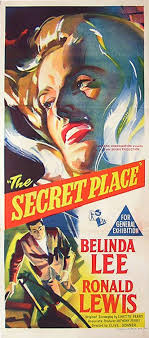Critical
Variety said "the East End setting among London’s bombed sites provides an intriguing background for this crime meller. But the story unspools too casually, dissipating too much of the potential tension. As it stands, it's a modest b.o. bet. moderately entertaining." [15]
Lindsay Anderson, writing in the New Statesman , called the opening sequence "the most exciting sequence seen on a (wide) screen in this country in the last five years" and said the film was "a remarkably assured and craftsmanlike start" for Donner's career. [16]
The Monthly Film Bulletin said the film "gains strongly over the average British crime thriller in its concern to establish a realistic background and setting. The East End locations are well chosen and freshly observed; the characters (apart from the two criminals, who seem rather unduly public school) quite convincingly inhabit this world of grey back streets and derelict bomb-sites. The balance between action sequences (the neatly-staged robbery and the final chase) and character study is well sustained, and Belinda Lee gives her best performance to date." [17]
The British Film Institute praised the "remarkable debut screenplay by Linette Perry, which manages to intertwine the generic conventions of the heist thriller with a simple, but poetic, moral drama. In Perry's world the secret places stretch beyond the physical – the record player, gang hideouts and derelict buildings – into the hearts of the young protagonists. Faced with opportunity and misguided by love, the characters are all confronted with their own buried selfishness." [18]
Filmink called it a "minor classic" and said it was the one film in Belinda Lee's career that comes close to cult status. [19]
In British Sound Films: The Studio Years 1928–1959 David Quinlan rated the film as "very good", writing: "Convincingly set drama with tingling climax." [20]
